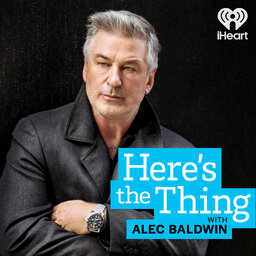Broadway Star James Naughton Is Working for Change
Born a gifted athlete, life almost took James Naughton down another path…until he found his home in the theater. The actor earned his first Tony for the musical City of Angels – and his second as the originator of the role of Billy Flynn in the hit Broadway revival of the musical Chicago, now the second-longest running show in Broadway history. As a director, he helmed the Tony-nominated Arthur Miller’s “The Price” and Thorton Wilder’s “Our Town,” the latter of which was featured on PBS’ Masterpiece Theater. Naughton also regularly brings his talent to the small screen, like in his roles on “Who’s the Boss?,""Ally McBeal,” and “Gossip Girl,” and in films “The Devil Wears Prada” and “The First Wives Club.” James Naughton shares with host Alec Baldwin his experience directing - and being directed by - his good friend Paul Newman, acting at the famous Williamstown Theater with an all-star ensemble, and how he’s working to enact change through legislation today.
In 1 playlist(s)
Here's The Thing with Alec Baldwin
Award-winning actor Alec Baldwin takes listeners into the lives of artists, policy makers and perfor…Social links
Follow podcast
Recent clips

From The Archives: Don Lemon Writes About God
47:11

Chris Whipple is Still Covering the White House
43:43

From the Archives: John Dean
57:49
 Here's The Thing with Alec Baldwin
Here's The Thing with Alec Baldwin